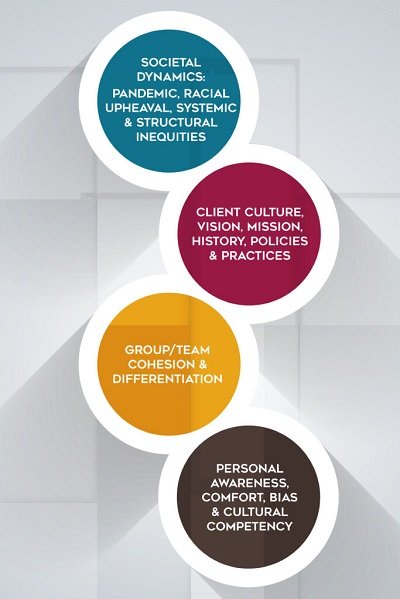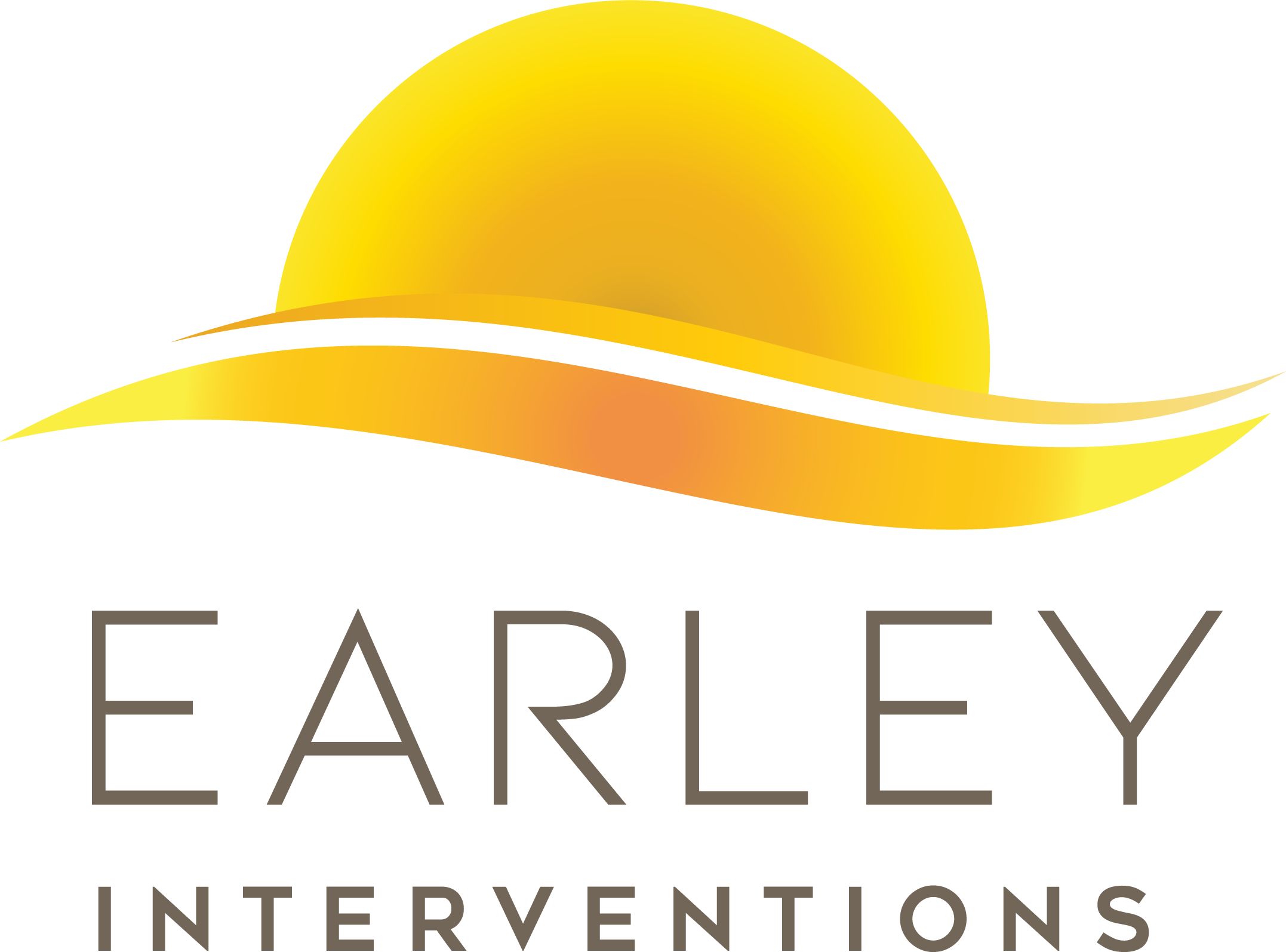DEI CONSULTING
An Organizational Development Approach
A SUCCESSFUL DEI INTERVENTION PLAYS OUT AT ALL LEVELS IN A CLIENT SYSTEM
It is important to understand these levels, including how they operate and intersect.
We begin with a personal investment which is necessary to truly understand the differences and similarities among us. This is an individual journey and it doesn’t stop there.
Individuals interact with others requiring an appreciation of group dynamics.
Personal and group development occurs in a larger organizational context which, in turn, requires consideration of the external operational environment.

DEI competence requires ongoing refinement. We must be able to diagnose systems, structures, and processes, recognizing the instances where DEI is constrained, avoided, minimized, or glaringly absent. Individual awareness (bias, cultural competency, microaggression, conflict styles, etc.) is a necessary foundation for developing an effective DEI strategy.
Organizations can be seen as existing along a continuum regarding DEI efforts.
It is important to develop strategies that work for an organization given, among other things, its history, commitment, and leadership.
These things vary from organization to organization. Organizations also vary based on the sector within which they operate. Hence, for example, the DEI discussion at a consumer-based, retail entity will differ from a B2B organization. Companies for which the imperative is shareholder return differ from government or non-profit which focus on achieving mission-related objectives.
Keith’s DEI journey reflects an eclectic range of experiences that span more than 20 years. He has developed strategic frameworks for corporate and professional services organizations. He has extensive consulting experience working with a full range of clients in government, corporate and non-profit sectors using well-research frameworks. Keith’s approach is experiential and development. He uses concepts based on organization development, intercultural competency, and emotional intelligence that promote personal awareness and systemic change.
What People are Saying
DEI CONSULTING PRAISE
The Intercultural Development Inventory
Keith is a Qualified Administrator of the IDI which he uses for DEI development, business strategy integration, and coaching.
The IDI
Keith uses the Intercultural Development Inventory (IDI) to assess individual cross-cultural competence. The current version of the Intercultural Development Inventory, developed by Dr. Mitchell Hammer, is a 50-item, theory-based instrument that measures intercultural sensitivity.
Theory Based
The IDI measures an individual’s and/or group’s fundamental worldview orientation to cultural difference, and thus the individual or group’s capacity for intercultural competence. As a theory-based test, the IDI meets the standard scientific criteria for a valid and reliable psychometric instrument.
Actionable Results
The IDI is a framework for explaining the reactions of people to cultural differences. The underlying assumption of the model is that as a person’s experience of cultural differences becomes more complex, that person’s potential competence in intercultural interactions increases.


